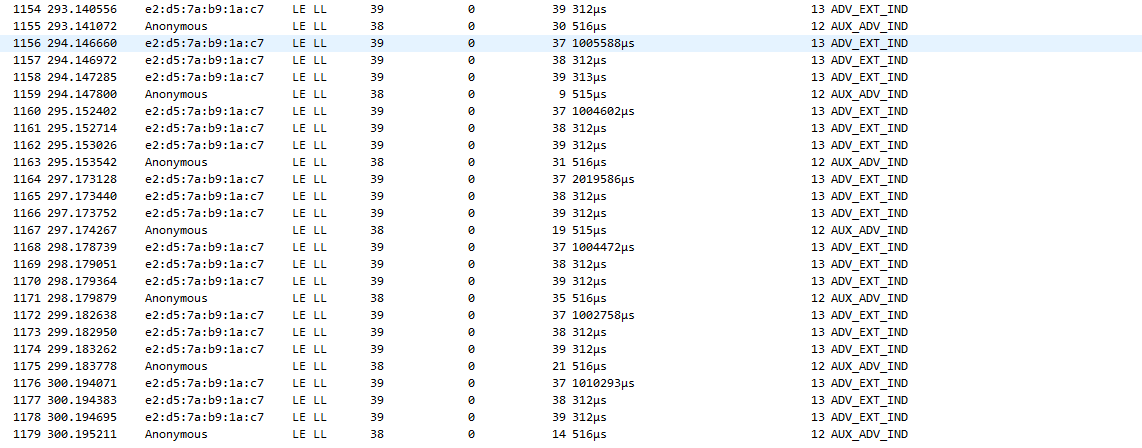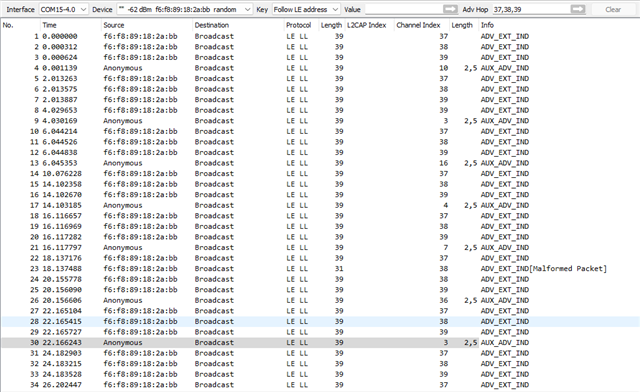After updating to the softdevice controller included with NCS v2.3.0 (nrfxlib 6d0f58448fae164cfa4d28c494d6bddf5d0d0224), I have noticed what appears to be a behaviour change.
Previously, when configuring Zephyr to scan on Bluetooth with 100% duty cycle (interval == window), extended advertising packets that were scheduled for transmission by my application would be received on a secondary device reliably. After updating, I am seeing approximately 0% of these packets (maybe 1 packet every minutes at 1Hz transmission). If I update my scanning window from 100% to 99%, the secondary device is again receiving the vast majority of the packets. In both cases, I receive no errors from the Bluetooth stack and all expected events are generated (TX done callback called with num_sent == 1).
Has there been some internal change to TX or RX scheduling in v2.3 that could account for this change in behaviour?
Perhaps related to the experimental PAwR or PAST support added?




